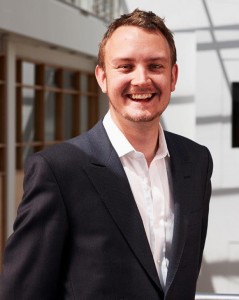Why our industry needs multi-skilled generalists
About the author
Our guest authors are what make PR Place such a vibrant hub of information, exploration and learning.

This is an article by Richard Fogg.
I’m glad I’m not graduating now. I wouldn’t stand a chance at getting a job in PR.
At least not if the panellists at yesterday’s ‘Tomorrow’s Talent’ session at the In2Summit were reviewing my application.
I’ve only got a First Class (Hons) degree in Public Relations from Bournemouth Uni (haven’t been able to say that for years – sorry). I only came second in my Uni’s CIPR student prize. I only had a year’s experience at a respected PR consultancy.
Today, I’m not sure that would be quite enough.
In short, I’m a bit too focused. A bit too narrow. What a terrifying thought.
I’m over-exaggerating (well, a little). But if there’s one thing that really came across in an excellent panel debate, it’s that the PR practitioner of tomorrow has to be multi-skilled with a range of associated ‘qualities’.
Between panellists, moderator and keynote, I picked up nearly a dozen different skills:
- Cultural anthropology
- Behavioural science
- Animation
- Storytelling
- Stakeholder management
- Problem solving
- Creating influence
- Commercialism
- International thinking
- Communication
And then there were the qualities too:
- Curiosity
- Empathy
- Courage
- Creativity
- Innovation
I could go on. The one phrase that caught it for me came from Tom Barton of Cap Gemini – ‘demonstrable generalism’. The people that will be most highly prized – or perhaps even fit for purpose – in the PR industry of tomorrow will be those that are willing to try things out and gain a
Mohammed Al Ayed of TRACCS, the largest independent agency in the Middle East, outlined the three skills/capabilities he tries to develop in his people – his ‘Supermen’ and ‘Superwomen’. They are psychology, problem solving and negotiation. And he believes it takes 12 years to build them…and then they tend to leave for jobs they ‘simply can’t refuse’.
Despite this transience, most speakers agreed that training is critical, ongoing learning essential, up-skilling a no-brainer. Why? Because the ultimate risk (and one facing many, many PR professionals) is obsolescence.
And that kind of loops back round to a comment that CIPR President Stephen Waddington made on his blog a while ago, and a subject close to my heart: the value of a PR degree.
CCgroup doesn’t hire PR grads just because they know the basics of the PR industry, come with valuable experience and are ‘industry-ready’. We hire them because they tend to be highly trained magpies – they know how to learn and that means they stand a high chance of becoming the multi-skilled generalists our industry needs.
Just look at the course content of the BA Public Relations degree at Bournemouth University: public opinion and persuasion; marketing integration; contemporary media and popular culture; PR strategy and tactics; written and visual communications; issues management and CSR; professional research; digital communications strategies; political communication; brand management; multicultural communications; social communications; creativity; consumer cultures and societies; relationship marketing; entrepreneurship; environmental communication; sponsorship; behavioural economics – the list goes on.
Feels like the kind of course that’s going to turn out multi-skilled generalists to me.
I’d argue that our universities have been quietly building the people we need to push the practice and potential of PR forward. But according to some stats I’ve seen from the PRCA, a surprising number of consultancies actively avoid or don’t prioritise the recruitment of PR grads. Wouldn’t that seem bizarre based on what the In2Summit panelists expressed?
Perhaps we’re looking at a more fundamental, systemic problem in PR. Perhaps the real failing here is not in the raw materials. Perhaps it’s that the PR industry has not figured out how to make continual learning a core competence.
If we’re to redress this problem and build the talent of the future, we have to nurture our inner magpies. That’s a responsibility on all our shoulders.
Richard Fogg is managing director of CCgroup PR and has over a decade of experience in B2B telecoms and technology PR.